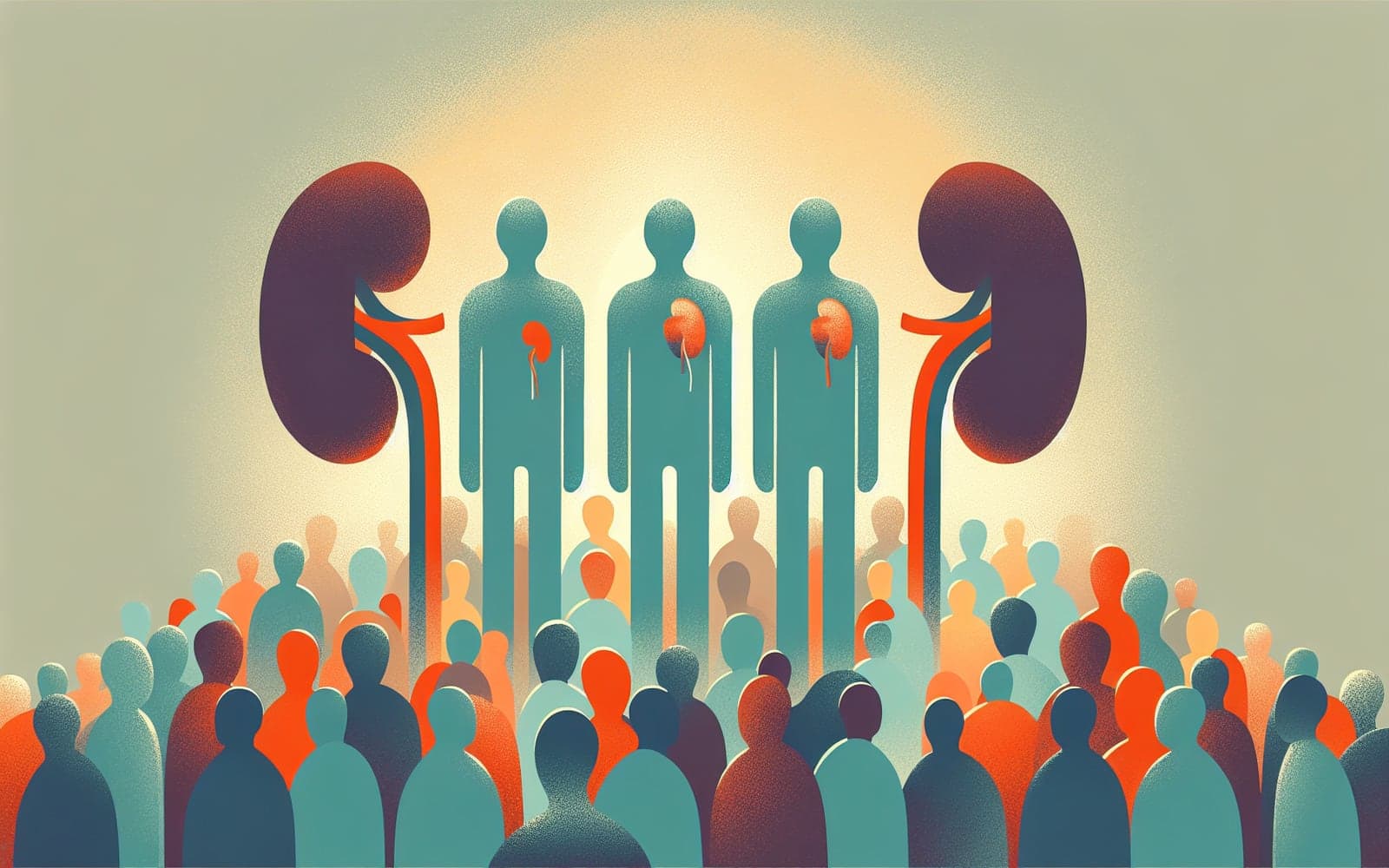The Silent Threat: Diabetic Kidney Disease Explained
Published: Jul 17, 2024
Diabetic kidney disease is a leading cause of chronic kidney issues worldwide. This article breaks down how it develops and why it matters for those with diabetes.
Contents
Understanding Diabetic Kidney Disease
Diabetic kidney disease is a complex condition stemming from diabetes, causing kidney damage over time. The main culprits include high blood sugar levels, which lead to harmful substances in the body that attack the kidneys. These processes are known as oxidative stress and inflammation, which are like rust and fire damaging your kidneys from within.
The Role of Glomerular Hyperfiltration
In diabetic kidney disease, the kidneys often work overtime, a state known as glomerular hyperfiltration. This happens when the kidney filters too much blood too quickly, leading to stress and eventual damage. It's like running a car engine at full throttle all the time, which wears it out faster. Over time, this can lead to proteins leaking into the urine, a sign of kidney damage.

Who is at Risk?
Several factors increase the risk of developing diabetic kidney disease. Age plays a significant role, with older adults more likely to be affected. Additionally, certain ethnic groups, such as African Americans and Hispanics, are at higher risk. Lifestyle factors like smoking, obesity, and poor blood sugar control also contribute significantly to the risk.
Frequently Asked Questions
It's a kidney condition caused by diabetes leading to kidney damage.
It causes the kidneys to overwork and leads to damage over time.
Older adults, certain ethnic groups, and those with poor lifestyle habits.
Yes, with good blood sugar control and healthy lifestyle choices.
Key Takeaways
Understanding and managing diabetic kidney disease is crucial to improving outcomes for those affected.
Want to know more about keeping your kidneys healthy? Talk to Doctronic today!Related Articles
References
Vallon V, Komers R. Pathophysiology of the diabetic kidney. Compr Physiol 2011; 1:1175.
Sheetz MJ, King GL. Molecular understanding of hyperglycemia's adverse effects for diabetic complications. JAMA 2002; 288:2579.
Always discuss health information with your healthcare provider.